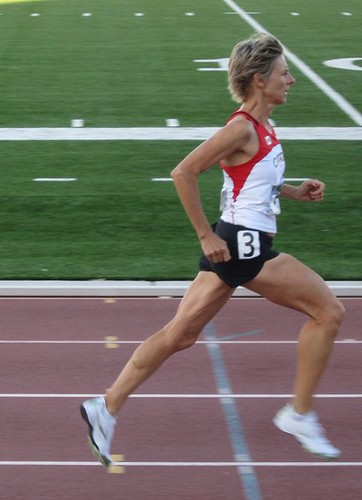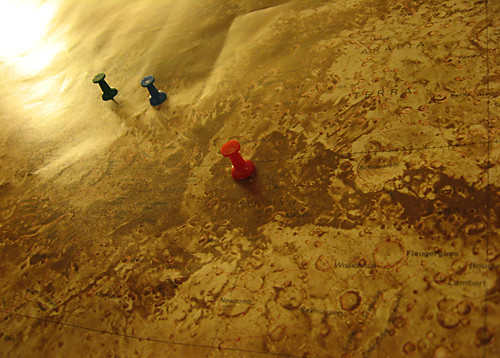 This is the 22nd in a series of RunSmart videos. The series is on-going, with a new video released on a biweekly basis. These videos complement the material presented in the book “RunSmart: A Comprehensive Approach To Injury-Free Running”. The full series of videos can be found here. A compilation of the first 10 videos will be available on Vimeo as well.
This is the 22nd in a series of RunSmart videos. The series is on-going, with a new video released on a biweekly basis. These videos complement the material presented in the book “RunSmart: A Comprehensive Approach To Injury-Free Running”. The full series of videos can be found here. A compilation of the first 10 videos will be available on Vimeo as well.
For those of you that are interested in a more interactive learning environment, consider attending a Level One (half day), Level Two (one day), or Level Three (two day) RunSmart program. The Level One program is 4 hours and focuses on basic training principles, running mechanics, and injury prevention. The Level Two program is 8.5 hours and focuses on performance optimization and training program development. The Level Three program is a two day, 15 hour program that includes a comprehensive approach to running injuries. I am currently putting together a 2013 schedule. If you are interested in attending an upcoming session, schedule updates will be posted here and on my newsletter. If you would like to host a session in your community, please contact me.
In this video, I discuss principles and practices. Stephen Covey has put forth the idea of principles, the “why” we do, as contrasted with practices, the “what” we do. This is discussed in the context of run training.
 I interrupt your Olympic viewing to bring you this special announcement. Spoiler alert. Oh, wait, NBC might be too transfixed on Michael Phelps or Gabby Douglas or Missy Franklin to pick up on this one anyways.
I interrupt your Olympic viewing to bring you this special announcement. Spoiler alert. Oh, wait, NBC might be too transfixed on Michael Phelps or Gabby Douglas or Missy Franklin to pick up on this one anyways.
We were just witnesses to one legendary wow moment of far beyond Olympic proportions. NASA has done it again. At 12:39 am central time, Curiosity landed on Mars and started sending back images from the Red Planet.
The video from the Jet Propulsion Laboratory, once Curiosity landed on Mars, was akin to that seen after a gold medal performance.
 The Olympics are upon us. We’re now through day 6, and all is well in London. It would appear that the biggest scandal in these Olympics thus far has been the attempted game-fixing in badminton. Oh, those crazy badminton cheats. Now that is big news. I guess that says a lot about how smoothly these Olympic Games are moving along, even though London certainly isn’t Salt Lake City.
The Olympics are upon us. We’re now through day 6, and all is well in London. It would appear that the biggest scandal in these Olympics thus far has been the attempted game-fixing in badminton. Oh, those crazy badminton cheats. Now that is big news. I guess that says a lot about how smoothly these Olympic Games are moving along, even though London certainly isn’t Salt Lake City.
Though NBC provides the United States with a bazillion hours of coverage, we don’t really see the broad perspective of the Olympics. We see the American drama, and the occasional smattering of the cool things happening to the rest of the world. We also have to bear with Bob Costas, who has his moments of greatness and his moments of utter goofiness.
This episode of the Rhubarb Report has a decidedly Olympic slant to it, with a touch of NYC just to bring it all back home again.
 After just four days of the London Olympics, we have already seen a number of incredible performances. We have also heard the tales of quite a few Olympians whose epic journeys have brought them to this place in time and sport history. We’ve laughed and we’ve cried.
After just four days of the London Olympics, we have already seen a number of incredible performances. We have also heard the tales of quite a few Olympians whose epic journeys have brought them to this place in time and sport history. We’ve laughed and we’ve cried.
Some of those stories are admittedly pretty dramatic. Awe-inspiring. Motivational. Each and every Olympian would appear to have a dramatic journey that brought them to London.
Every couple of years, the media do a great job of presenting us with two weeks worth of human interest stories.
But what about the other 102 weeks?
If nothing else, the Olympics should serve to remind us of one important fact: Olympian or otherwise, we all have a story to tell.
 By the year 2015, the United States will have 62,900 fewer doctors than needed. By 2025, the number will double. Even if you don’t factor in changes in health care law, there will still be a need for over 100,000 doctors by 2025. These statistics are from the latest estimates from the Association of American Medical Colleges. But these numbers really haven’t changed much since 2010. The greatest demand will be for primary-care physicians, traditionally the gatekeepers within the current health care system..
By the year 2015, the United States will have 62,900 fewer doctors than needed. By 2025, the number will double. Even if you don’t factor in changes in health care law, there will still be a need for over 100,000 doctors by 2025. These statistics are from the latest estimates from the Association of American Medical Colleges. But these numbers really haven’t changed much since 2010. The greatest demand will be for primary-care physicians, traditionally the gatekeepers within the current health care system..
Patients need access to care. But as it stands right now, in the current gatekeeper-driven model, they won’t get any care (or it will be expensive, emergency room-based care) because there simply aren’t enough gatekeepers (physicians).
But there is an easy solution – and physical therapists can provide it. Now.
 This is just a brief post to make an exciting announcement for all of my current readers and those new to the site.
This is just a brief post to make an exciting announcement for all of my current readers and those new to the site.
For those who have subscribed to my posts via email, I will be switching email services from Feedburner to AWeber. This change will allow me to send out not only blog posts but also a full newsletter with many great new features: exclusive content, special offers, dates for upcoming seminars, and information on new ebooks and other writing projects. The best part about it is that I will be able to provide readers with more content but with fewer emails in the process.
This change will only affect email subscribers. If you have subscribed via my RSS feed, no worries: it will still be handled by Feedburner, and no action is required on your part.
There are some important details notes for email subscribers.
 Life provides us with a myriad of choices and interactions on a daily basis. While we rumble along on our daily journey, we carry with us our hopes, our dreams, our perceptions, and our very own map of reality.
Life provides us with a myriad of choices and interactions on a daily basis. While we rumble along on our daily journey, we carry with us our hopes, our dreams, our perceptions, and our very own map of reality.
Each and every day, our greatest challenge isn’t the difficult patient, or the perplexing business project, or even the difficulties we may face with a spouse, friend, or family member. Those are minor details in the grand scheme of things.
Our greatest challenge is ourselves.
 "Running Injuries: Etiology And Recovery- Based Treatment" (co-author Bridget Clark, PT) appears in the third edition and fourth editions of "Clinical Orthopaedic Rehabilitation: A Team Approach" by Charles Giangarra, MD and Robert C. Manske, PT.
"Running Injuries: Etiology And Recovery- Based Treatment" (co-author Bridget Clark, PT) appears in the third edition and fourth editions of "Clinical Orthopaedic Rehabilitation: A Team Approach" by Charles Giangarra, MD and Robert C. Manske, PT.
 Allan Besselink, PT, DPT, Ph.D., Dip.MDT has a unique voice in the world of sports, education, and health care. Read more about Allan here.
Allan Besselink, PT, DPT, Ph.D., Dip.MDT has a unique voice in the world of sports, education, and health care. Read more about Allan here.
 Top 5 finalist in three categories: "Best Overall Blog", "Best PT Blog" and "Best Advocacy Blog".
Top 5 finalist in three categories: "Best Overall Blog", "Best PT Blog" and "Best Advocacy Blog".